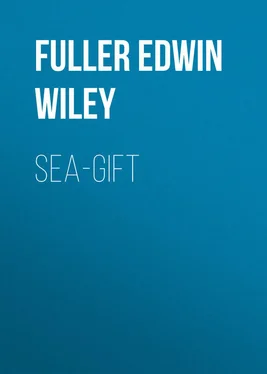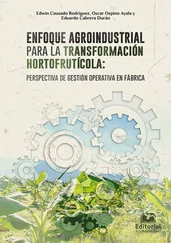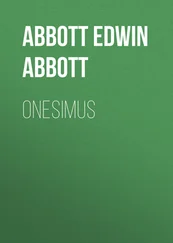Edwin Fuller - Sea-gift
Здесь есть возможность читать онлайн «Edwin Fuller - Sea-gift» — ознакомительный отрывок электронной книги совершенно бесплатно, а после прочтения отрывка купить полную версию. В некоторых случаях можно слушать аудио, скачать через торрент в формате fb2 и присутствует краткое содержание. Жанр: foreign_antique, foreign_prose, на английском языке. Описание произведения, (предисловие) а так же отзывы посетителей доступны на портале библиотеки ЛибКат.
- Название:Sea-gift
- Автор:
- Жанр:
- Год:неизвестен
- ISBN:нет данных
- Рейтинг книги:4 / 5. Голосов: 1
-
Избранное:Добавить в избранное
- Отзывы:
-
Ваша оценка:
- 80
- 1
- 2
- 3
- 4
- 5
Sea-gift: краткое содержание, описание и аннотация
Предлагаем к чтению аннотацию, описание, краткое содержание или предисловие (зависит от того, что написал сам автор книги «Sea-gift»). Если вы не нашли необходимую информацию о книге — напишите в комментариях, мы постараемся отыскать её.
Sea-gift — читать онлайн ознакомительный отрывок
Ниже представлен текст книги, разбитый по страницам. Система сохранения места последней прочитанной страницы, позволяет с удобством читать онлайн бесплатно книгу «Sea-gift», без необходимости каждый раз заново искать на чём Вы остановились. Поставьте закладку, и сможете в любой момент перейти на страницу, на которой закончили чтение.
Интервал:
Закладка:
After supper we had food enough for conversation till a late hour, when we retired only to dream of shipwrecks, and corpses, and half drowned girls.
At the breakfast table the following morning we were glad to meet Mrs. Cheyleigh, who was able to give us still more news about our little protégé. She told us she seemed much better, though feeble; that she recollected the scene now, and was weeping violently about her father’s death; that her mother had been dead several years; that her father was a native of New Orleans, and that he and she had started to this country to spend the summer, as was their custom; that they had stormy weather for several days, and been driven somewhat from their course, and when the violent storm came on it was said that the ship was sinking; that her father had lashed her to a cabin door he had wrenched off, and, that he might not get separated from her, tied his wrist to its knob. He threw her into the water and tried to follow, but was jerked over by the weight of the door, and fell, striking his head violently against it. He seemed to be stunned, as he made no motion afterwards, but drifted about with the door, his face down in the water and his whole body sometimes out of sight. That the ship was soon blown off and out of sight, and that her agony was so great, as she saw her father drowning, and could not move to help him, that she had become insensible, and had known nothing more till she was in Mrs. Cheyleigh’s room, though she remembered faintly seeing strange faces around her as in a dream.
“She is in constant distress about her father,” continued Mrs. C., “but I hope that, with proper care and attention, she will recover. Mr. Cheyleigh has sent to town for Dr. Mayland, and also for the Coroner, who will hold his inquest as soon as possible.”
Very soon after breakfast the Coroner arrived, and his jurymen began to drop in one by one.
We went out to the back piazza, where they were assembling, and walked among the crowd, listening to a confused jargon of questions in regard to the crops, wonderful tales of the ravages of the late storm, and surmises as to the drowned stranger, and the probable verdict that would be rendered.
The Coroner was a middle aged man, of great self-importance, who evidently thought an inquest a work of as great moment as a national negotiation. He took but little interest in the conversation of the others present, though he occasionally addressed some words to Mr. Cheyleigh, who was sitting near him. After considerable delay, and the assemblage of a large crowd of people, he pulled out his great fat silver watch, and said slowly:
“Well, I reckon we had as well begin. The morning is getting on smartly. Where is the body, Mr. Cheyleigh?”
Mr. Cheyleigh led the way, the Coroner and his jury following in single file till they reached the parlor. They crowded round the table to get a view of the corpse, all leaning forward, and holding their hats and hands behind them, as if they were tied there. The tall men looked on, while those small in stature moved round and round, vainly endeavoring to find a gap in the crowd to peep through.
The usual form of selecting and empanelling the jury was gone through with, and the Coroner commenced to examine the witnesses. Mr. Cheyleigh was first sworn.
“Mr. Cheyleigh,” said the Coroner, walking his chair backward on the two hind legs a step or two, to gaze better at Mr. Cheyleigh through a pair of very broad rimmed silver specs, “will you please to state all you know about the finding of this body.”
Mr. Cheyleigh came forward very gravely, and proceeded to relate his knowledge of the affair with a declamatory style, and with such long words that I did not know whether he meant to confuse the Coroner by using language above his two-syllable comprehension, or was acting under the common impulse of human nature to display proficiency in any department which has not been attained by those listening.
“The first information,” he began, with a salutatory wave of his hand, “which I received of the discovery of the bodies was imparted to me by my son and his friend. Immediately on receipt of this intelligence I took the large boat, and with some of my negroes we rapidly made the transit of the Sound. Their report of the melancholy catastrophe was unhappily confirmed, for in close proximity to the water’s edge lay this body. Edward and Frank brought the little girl over with them when they came for me, and Mrs. Cheyleigh has succeeded in resuscitating her. The man had apparently been inanimate for a period of some length, as his flesh had undergone considerable contraction from contact with the water – at least was contracted around the bones and features; the body proper was very much distended. He had been tied by one hand to the door of a ship’s cabin, though the boys had cut the cord. I placed the body in the boat, and brought it where you now see it.”
The Coroner moved his head up and down, slowly at first, then faster and in shorter spaces, till it came to rest, like a spring pendulum, as who should say:
“Just as I expected; all just as I expected;” and then, with a look of legal sagacity that would have adorned an Ellenborough, asked:
“Did you bring the door over with you?”
“I deemed that altogether unnecessary, but I took from the man’s waist a pouch containing some money and one or two checks for large amounts on New York houses. I also found a very fine watch and chain; the upper lid of the watch bears a bouquet of diamonds and the initials H. V. R. Here is the watch and pouch.”
He passed them to the Coroner, who examined every part as minutely as if he were identifying stolen property, and having satisfied himself that the articles did not belong to him, passed them on to the others, who each examined them in the same critical way.
“What, then, Mr. Cheyleigh,” resumed the Coroner, after they had all finished their tedious examination of the articles, and returned them to Mr. C., “do you think was the cause of his death?”
“Strangulation, sir, from the influx of water into the larynx, and the consequent exclusion of air.”
“Exactly – exactly, Mr. Cheyleigh; that will do, sir. Did you say your son found the bodies?”
“He and two of his friends.”
“We can examine him, then?”
“Certainly, sir.”
Ned was a little confused as he came forward, and kept passing his hand nervously over his tumbled hair. The Coroner assumed a mild, patronizing air, and said:
“Well, my son, what can you tell us of this affair?” Ned swallowed once or twice, and began:
“After the storm, John Smith, Frank Paning and myself thought we would go over to the banks and take a view of the ocean. When we got over the sky was fair, but the – ”
“Never mind about the sky, my son,” interrupts the Coroner, “just tell what you know about the dead man.”
“Well,” resumed Ned, with a long breath, and another swallow, “John Smith saw them first, and we all ran to them and tried to move the man, but found him rather heavy, we then cut the cords, and lifted up the little girl – ”
“Stop! stop! don’t tell about the girl, let us hear about the man.”
“I don’t know anything particular about him, except that he was dead.”
“How was he lying when you found him?”
“His feet were in the water and his face was in the sand. One arm was doubled under him so, and the other – the one tied to the door knob – was stretched out so.”
Ned here attempted to assume a descriptive attitude.
“Did the knot appear to have been tied by himself or somebody else?”
“It was a slip knot, and could have been fastened by himself.”
“Did he lie as if the water had washed him up, or somebody had placed him there?”
Читать дальшеИнтервал:
Закладка:
Похожие книги на «Sea-gift»
Представляем Вашему вниманию похожие книги на «Sea-gift» списком для выбора. Мы отобрали схожую по названию и смыслу литературу в надежде предоставить читателям больше вариантов отыскать новые, интересные, ещё непрочитанные произведения.
Обсуждение, отзывы о книге «Sea-gift» и просто собственные мнения читателей. Оставьте ваши комментарии, напишите, что Вы думаете о произведении, его смысле или главных героях. Укажите что конкретно понравилось, а что нет, и почему Вы так считаете.












